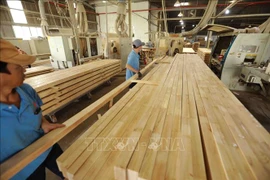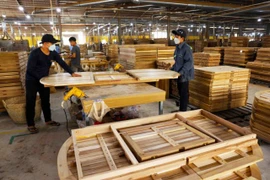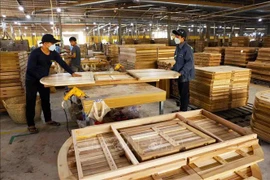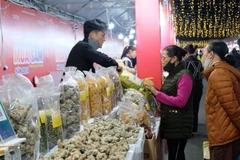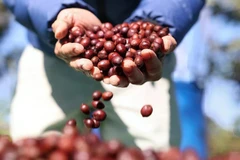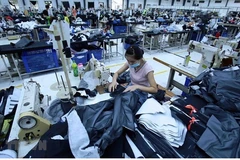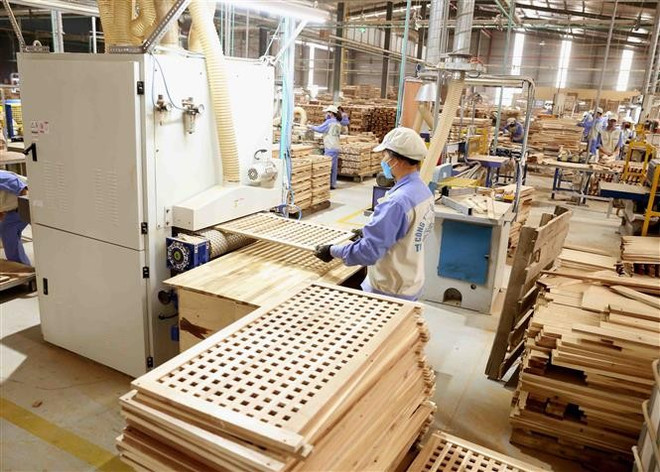
Hanoi (VNA) - In the first 11 months of 2024, wood and wood products earned a trade surplus of 12.11 billion USD. Despite this significant value, Vietnam's wood industry is facing strong changes in the policies of export markets, particularly from the US.
Significant impact from US policy adjustments
According to Do Xuan Lap, Chairman of the Vietnam Timber and Forest Products Association, the export revenue of wood and wood products is projected to exceed 16.2 billion USD in 2024, with the US accounting for 56% of the total, nearly 9 billion USD. Imports from the US are expected to surpass 230 million USD, resulting in a trade surplus of approximately 8.8 billion USD, which again showed the US is the most important market for Vietnam’s wood export.
However, future US policies could bring significant changes, one of which is proposed import tariffs of 60% on goods from China and 15-20% on goods from other countries.
Policy analyst To Xuan Phuc from Forest Trends emphasised that Vietnam’s wood industry is closely linked to US-China trade relations, so any policy shift under President Trump’s administration will have impact on Vietnam’s wood exports.
Dr Phuc also forecast three major shifts as a result of President-elect Trump’s policies: the shift of supply chains from China, the shift in Chinese outbound investment flows, and the shift in migrant labour flows—all of which could affect Vietnam's wood exports.
Businesses must enhance adaptability
Dr Huynh The Du, Director of the Fulbright Vietnam Economics Teaching Programme, highlighted that the Trump administration’s policies present both opportunities and challenges. He stressed that Vietnam must remain flexible, strengthen international cooperation, and improve domestic competitiveness.
He noted that the US requires imported wood products to have clear, legal, and environmentally compliant origins. Vietnamese businesses must ensure their raw materials comply with international laws.
“There’s also a risk of anti-dumping and countervailing duties if the US detects fraudulent origin claims, such as Chinese goods being transhipped through Vietnam to avoid tariffs,” Dr Du warned.
Additionally, US policy changes could increase competition against Vietnam’s products from other suppliers. Countries like Malaysia, Indonesia, and Thailand may boost their wood exports to the US. Simultaneously, the US is expected to give more support to its domestic wood industry to reduce dependence on imports.
Du advised Vietnamese enterprises to adapt to new requirements in the US market by investing in technology and innovation, improving product quality, and meeting international standards.
Looking ahead, Dr To Xuan Phuc urged businesses to prepare for potential anti-dumping investigations and trade defence measures in the US market by enhancing legal capabilities and risk management. With suitable adaptation to shifting global investment and trade flows, Vietnam's wood industry could become a leading regional processing and export hub./.
